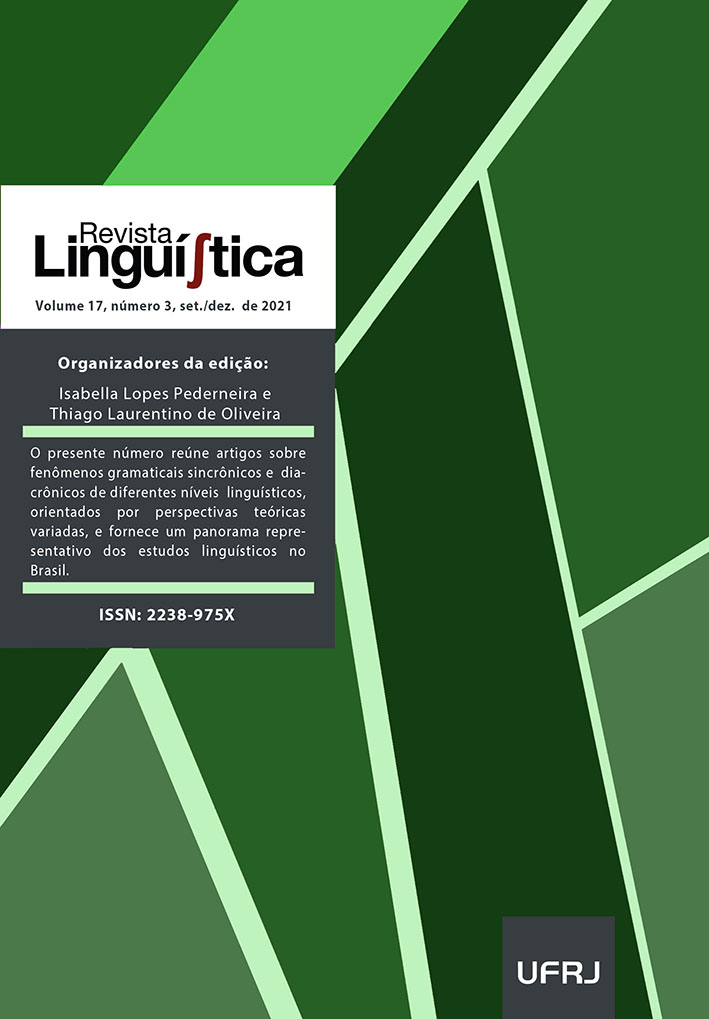The behavior of possessive pronouns seu(s); sua(s); dele(s) e dela(s) in the recovery of their antecedents
DOI:
https://doi.org/10.31513/linguistica.2021.v17n3a50239Keywords:
possessive pronouns, principle B, distributed morphology, features.Abstract
This article makes a description and analysis of possessive pronouns seu(s), sua(s), dele(s), and dela(s), based on Principle B of the theory of Government and Binding (CHOMSKY, 1981), according to which the pronoun must be free in its regency category. This means that pronouns do not need antecedents, but when they have them, antecedents can’t c-command them within their regency category. However, in some cases the possessive pronouns seu(s); sua(s); dele(s) and dela(s) seem to be linked, as in the sentences: (1) [Pedro1 considera seu1 óculos] o mais bonito; (2) Felipe acha [Gabriela1 orgulhosa dela1]. Through data taken from the SP2010 project corpus, transcribed by the Study and Research Group in Sociolinguistics at USP, coordinated by Prof. Dr. Ronald Beline, we identify that the possessive pronouns seu(s), sua(s), dele(s) and dela(s) do not act as predicted by Principle B of the Binding Theory. From the perspective of Distributed Morphology, we suggest that such pronouns are underspecified, but the pronouns seu(s) and sua(s) seem to be more underspecified than dele(s) and dela(s), since they have several types of background: 3rd person, 2nd person, 2G and 3G causing the phenomenon of syncretism, because these antecedents have more than one syntactic-semantic feature, being retaken by the same phonological content. The pronouns seu(s), sua(s), dele(s), and dela(s) seem to have features [+anaphoric, +pronominal] since they behave both as pronouns and as anaphors, with seu(s) and sua(s) more anaphoric and dele(s) and dela(s) more pronomial.Downloads
Published
Issue
Section
License
Authors who publish in the Revista Linguí∫tica agree with the following terms:
The authors maintain their rights, ceding to the journal the right to first publication of the article, simultaneously submitted to a Creative Commons license permitting the sharing with third-parties of published content as long as it mentions the author and its first publication in the Revista Linguí∫tica.
Authors may enter into additional agreements for the non-exclusive distribution of their published work (for example, posting in online institutional or non-profit repositories, or book chapters) so long as they acknowledge its initial publication in the Revista Linguí∫tica.

The journal Revista Linguí∫tica is published by the Post-Graduate program in Linguistics of UFRJ and employs a Creative Commons - Attribution-NonCommercial 4.0 International (CC-BY-NC).









